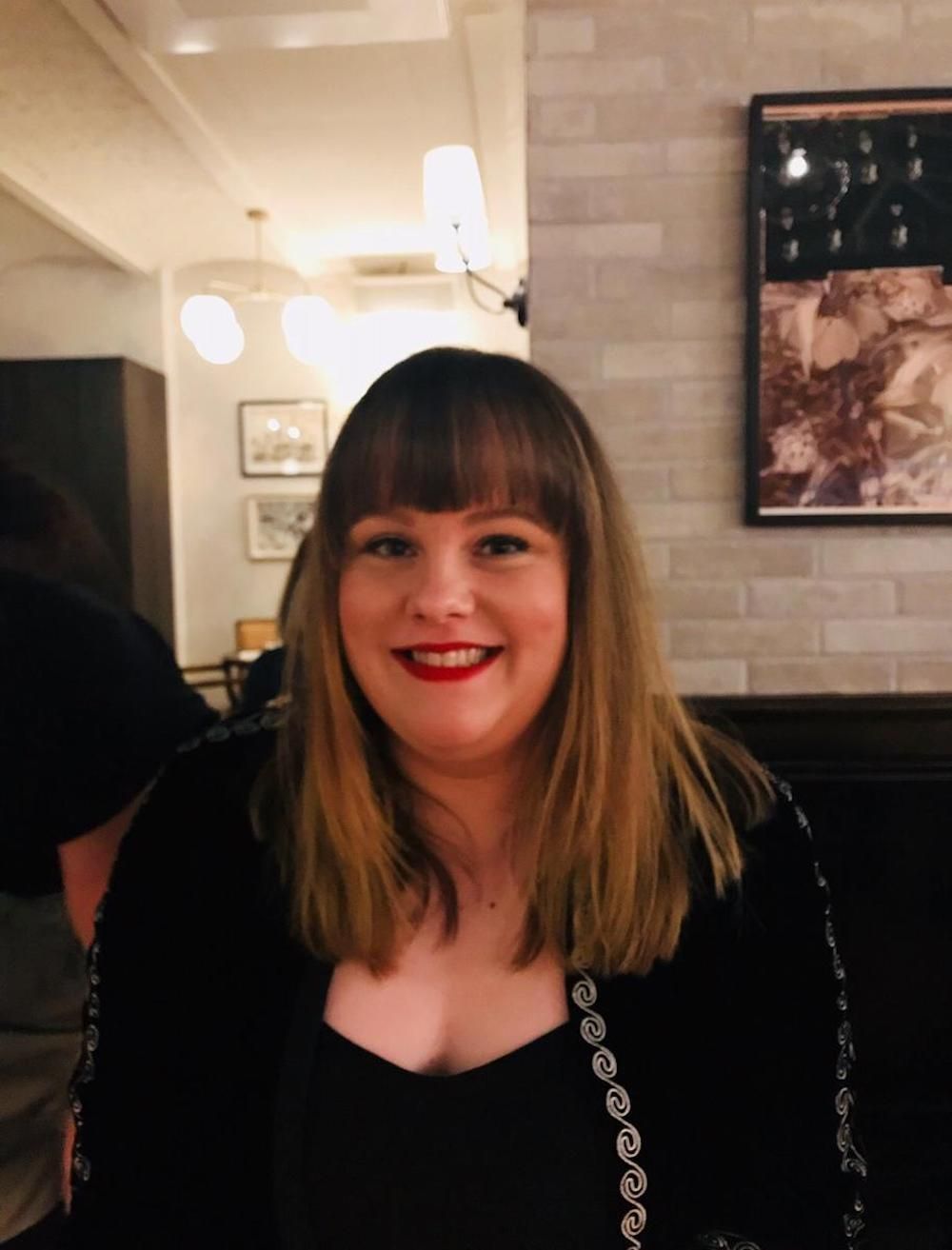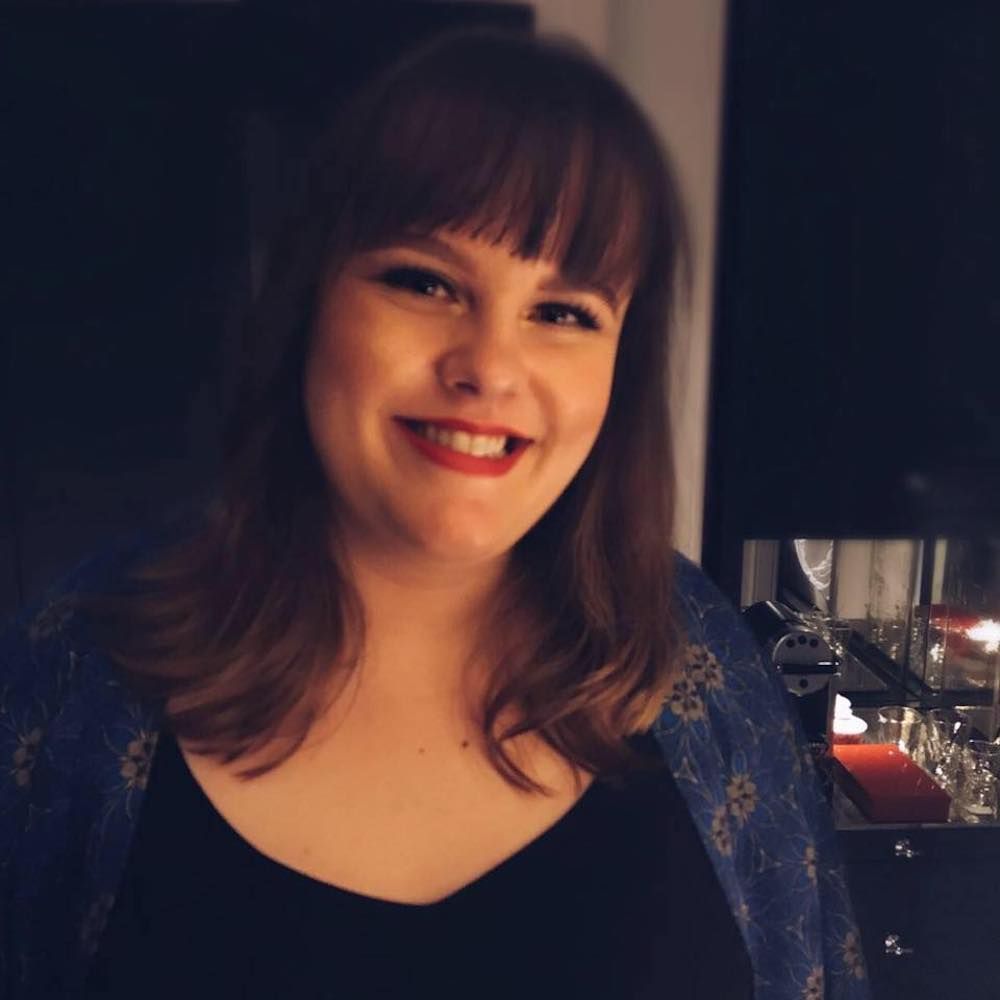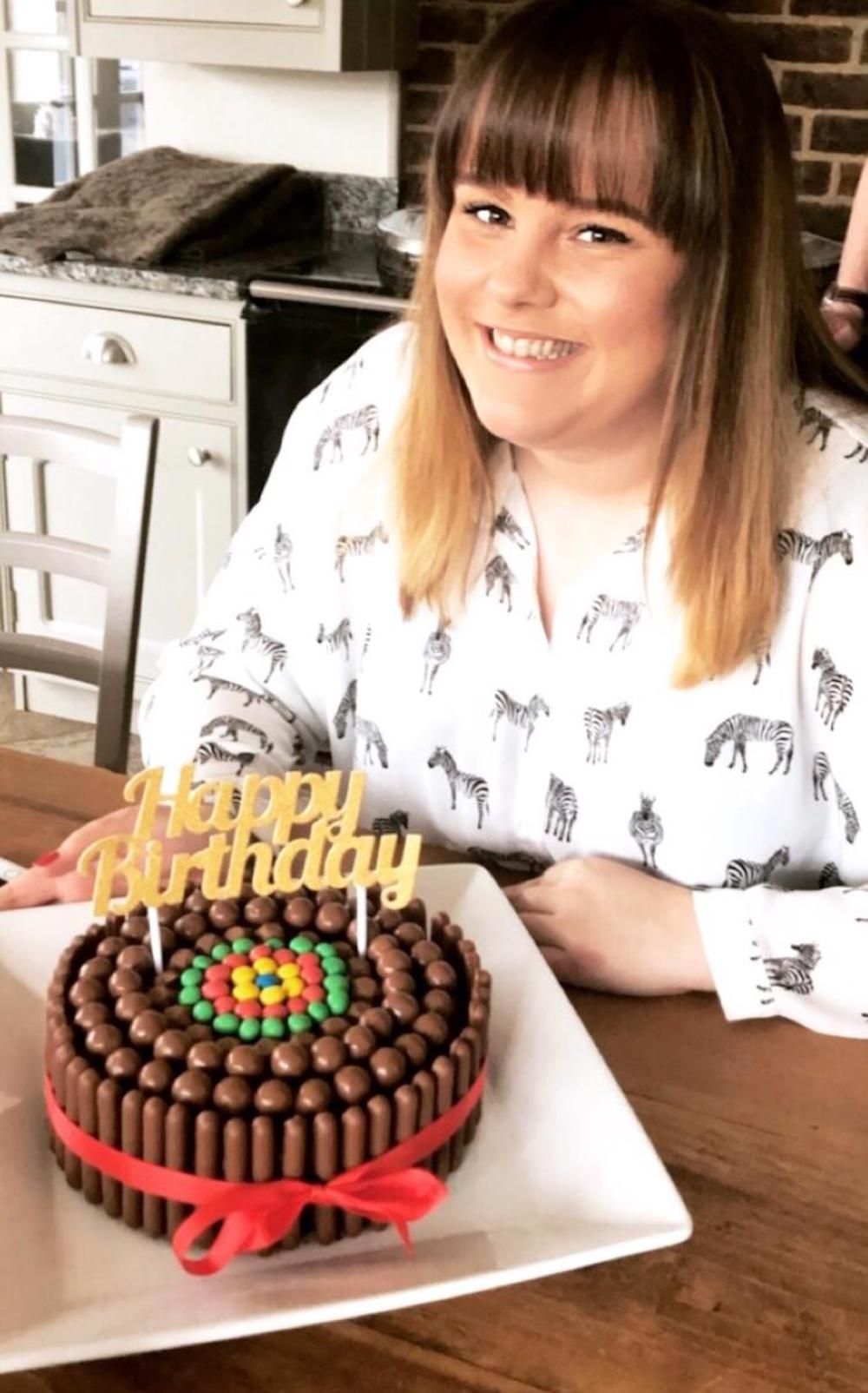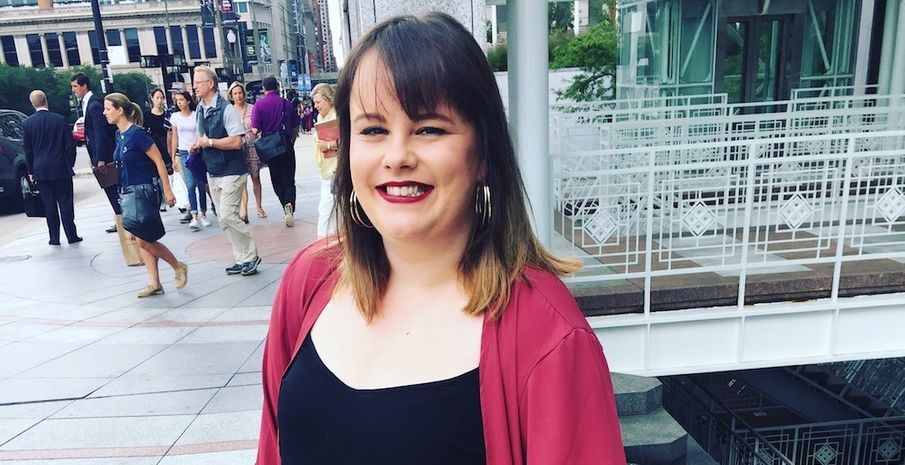Depression and anxiety drove Charlotte Duff to nearly end her own life. But after she found the courage to seek help, she now faces the future with hope – and the knowledge that she is not alone
It was 5am when I woke. The sun had just started to rise. I had a few seconds of peace until, suddenly, I remembered. Thoughts started rushing through my mind, making my heart race and my breath quicken.
I got up to go to the bathroom, feeling unsteady on my feet as I tried to be quiet.
I caught sight of myself in the bathroom mirror and I barely recognised what was staring back. For the past few months, I had been locked in a cycle of sadness and fear. I worried constantly. I exhausted myself from worrying. No sooner would I talk myself out of whatever worry was bothering me, than another would come in its place. And another. And another. I couldn’t read, sleep, or enjoy anything. I wasn’t sure I was ever going to wake from this nightmare.

Charlotte Duff
I made sure the bathroom door was locked and sobbed as quietly as I could.
This was never going to stop. My old self had died. I was sure of it. Strewn tissues lay around me and my head started to throb from the tears. I grabbed a full packet of painkillers from the bathroom cabinet, and my hands shook as I opened them.
But something deep inside me pulled me back. Almost mechanically, I put the tissues in the bin and the pills back into the medicine cabinet. This was not going to be my story. I had to do something.
I was as honest and as frank as I could be when I told my family that I didn’t think I was well and I could no longer cope. They were lovely and understanding, like they always are.
I was preparing to leave home for university – I was desperate to go, and had been looking forward to starting afresh somewhere new and exciting. I didn’t want whatever this horrid thing was to follow me.
September came and, somehow, I managed to make myself seem like a normal 19-year-old. Freshers’ Week was spent making friends, exploring a new city, drinking too much, and living off takeaways. In photos I have from that time, I look fine. Happy, even. For all of the pain going on in my own head, I somehow got through it. Until, I didn’t.
The worrying and overthinking soon reared its ugly head, alongside a bout of homesickness. Even though I was terrified of talking to a doctor about what was going on inside my head, that’s exactly what I planned to do.
A few days later, I sat down with my new doctor and she asked me why I had come to see her. I had rehearsed something while I was walking to the surgery.
I’d say that I was feeling panicky, sad, and exhausted, and I didn’t know why. Instead, I burst into tears and told her I didn’t know what to do anymore. I couldn’t cope. Everything I had dealt with for the past few months came pouring out. She looked shocked, and I wondered what on earth she thought of me.

Charlotte Duff
But then, she did something I didn’t expect. She took my hands in hers and softly began talking to me.
“I honestly would never have thought that this is why you had come in. Nothing about you suggests you’d be so unwell. Even the way you knocked on the door just now was like you haven’t got a care in the world.”
She passed me a tissue, and told me my pulse was racing. She listened to me, talked to me, and understood me. She told me that I wasn’t well, and I needed help. But she also told me this: “You will get better. This is nothing to be ashamed of. You aren’t alone.”
I was told I had anxiety and depression, and I could try cognitive behavioural therapy and medication – or therapy first, and then medication. Whatever felt right for me. We agreed that I would try both. I was a little apprehensive about taking antidepressants; I had heard the stories of why they should be avoided.
“Anxiety and depression is like any other illness. If you had an infection or any other physical illness, you’d take medication, wouldn’t you? That’s all this is,” the doctor told me.
Leaving the surgery that morning armed with a prescription, leaflets, and telephone numbers, I felt as if I could take on the world. This ugly, horrid thing was going to end here.
Seven years on, I still take antidepressants. I still have panic attacks. I still have days where I am so sad that I can barely put one foot in front of the other. But something I also have now is hope. Hope and knowledge. I have become a better friend to myself and am starting to finally understand how all of this works.
Antidepressants are not magic “happy pills”. They do not erase sadness and bring euphoria in its place. They simply keep things ticking over, helping to make life more bearable. The rest is up to us. Eating well, sleeping well, talking with a professional, trying mindfulness, self-care, exercise.

Charlotte
Sometimes, I find that just talking to my mum, or my best friend, helps. We never need to suffer in silence: there’s always someone who will listen.
I’ve kept a scrap of paper from seven years ago when the doctor explained anxiety and depression to me, and drew a jagged line. Up and down. Up and down.
“This is how it will be. Sometimes you’ll be down and sad and suffering. But, always know this: there’ll be times where you’ll be up and happy and hopeful.”
I cling to that because I know it’s the truth. For every tear shed, there will be a smile. For every moment of utter despair, I know there will be moments filled with joy, and love, and laughter.
There’ll be times where all we want to do is curl up and shut the world out, but there’ll also be times we’ll never want to forget – swimming in the ocean, laughing until crying. Life can be bleak and hard, but it can also be magic. Always try to remember that it’s worth living.
Mental illness is cruel because it is hidden, secret. I always think of the author Matt Haig’s quote in his wonderful book, Reasons to Stay Alive: “To other people, it sometimes seems like nothing at all. You are walking around with your head on fire, and no one can see the flames.”
People who suffer with mental illnesses are often dismissed as “weak”, but actually, we’re strong and capable of great things. We have come through the dark, frightening woods and out into the light. We have been heartbroken and lost. Sad and lonely. Terrified and exhausted. And we have survived.
When Charlotte became ill, she struggled with thoughts and worries that made her mind race. But, importantly, she recognised that she needed help. Seeking support with medication and therapy helped her to manage it, and allowed her to hope and live again. Accepting her anxiety allowed Charlotte to move forwards, and we can all learn from the simple steps she takes: contact with friends and family, talking about our feelings, and knowing that bad times will pass.


Comments